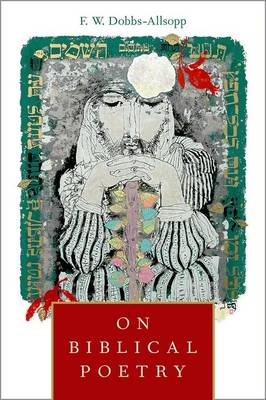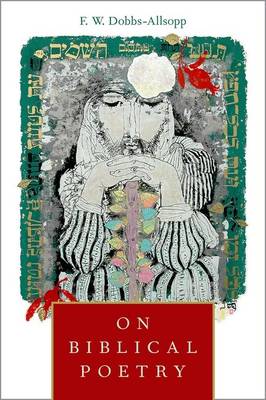
- Retrait gratuit dans votre magasin Club
- 7.000.000 titres dans notre catalogue
- Payer en toute sécurité
- Toujours un magasin près de chez vous
- Retrait gratuit dans votre magasin Club
- 7.000.0000 titres dans notre catalogue
- Payer en toute sécurité
- Toujours un magasin près de chez vous
Description
On Biblical Poetry takes a fresh look at the nature of biblical Hebrew poetry beyond its currently best-known feature, parallelism. F.W. Dobbs-Allsopp argues that biblical poetry is in most respects just like any other verse tradition, and therefore biblical poems should be read and interpreted like other poems, using the same critical tools and with the same kinds of guiding assumptions in place. He offers a series of programmatic essays on major facets of biblical verse, each aspiring to alter currently regnant conceptualizations in the field and to show that attention to aspects of prosody--rhythm, lineation, and the like--allied with close reading can yield interesting, valuable, and even pleasurable interpretations. What distinguishes the verse of the Bible, says Dobbs-Allsopp, is its historicity and cultural specificity, those peculiar encrustations and encumbrances that typify all human artifacts. Both the literary and the historical, then, are in view throughout.
The concluding essay elaborates a close reading of Psalm 133. This chapter enacts the final movement to the set of literary and historical arguments mounted throughout the volume--an example of the holistic staging which, Dobbs-Allsopp argues, is much needed in the field of Biblical Studies.
Spécifications
Parties prenantes
- Auteur(s) :
- Editeur:
Contenu
- Nombre de pages :
- 624
- Langue:
- Anglais
Caractéristiques
- EAN:
- 9780199766901
- Date de parution :
- 28-09-15
- Format:
- Livre relié
- Format numérique:
- Genaaid
- Dimensions :
- 155 mm x 236 mm
- Poids :
- 907 g

Les avis
Nous publions uniquement les avis qui respectent les conditions requises. Consultez nos conditions pour les avis.






